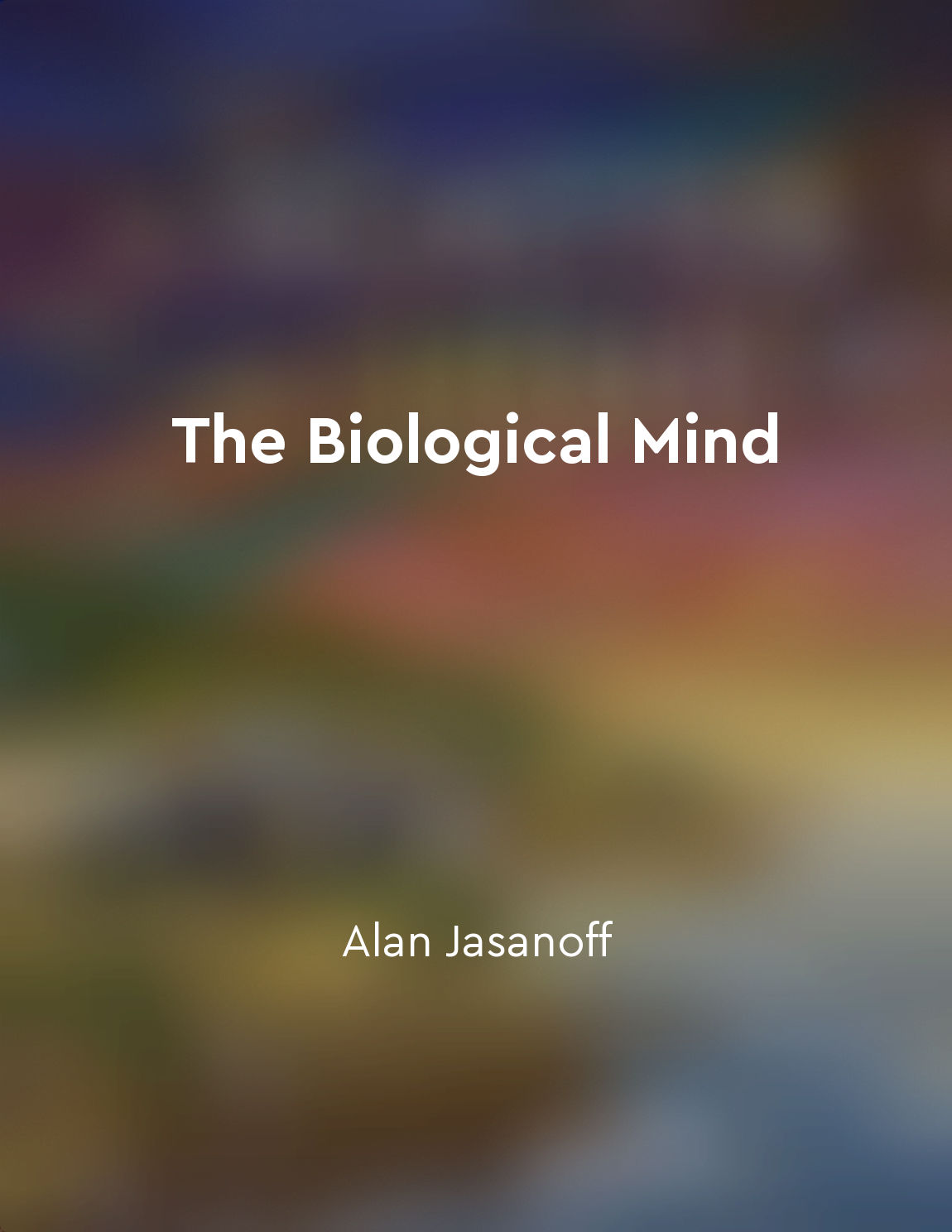Connection between brain and mind from "summary" of Where Buddhism Meets Neuroscience by The Dalai Lama
The relationship between the brain and mind is a complex and profound one that has fascinated philosophers, scientists, and spiritual practitioners for centuries. In the context of Buddhism and neuroscience, this connection is explored through the lens of understanding human consciousness and the nature of reality. From a Buddhist perspective, the mind is considered to be distinct from the physical brain, with the latter being seen as a physical organ that processes sensory information and facilitates thought. The mind, on the other hand, is viewed as the seat of consciousness and the source of our thoughts, emotions, and perceptions. Neuroscience, on the other hand, approaches the mind-brain relationship from a scientific standpoint, seeking to understand how neural processes give rise to mental phenomena. Through advances in technology such as brain imaging and electrophysiology, scientists have been able to map out the neural correlates of various mental states and experiences. The Dalai Lama emphasizes the importance of recognizing the interconnected nature of the brain and mind, acknowledging that while the brain plays a crucial role in shaping our experiences, it is ultimately the mind that gives rise to our subjective reality. This perspective aligns closely with Buddhist teachings on the nature of consciousness and the impermanent nature of all phenomena. By integrating insights from both Buddhism and neuroscience, we can gain a deeper understanding of the nature of consciousness and the ways in which our thoughts and perceptions are shaped by our neural processes. This interdisciplinary approach offers a unique opportunity to explore the mysteries of the mind-brain connection and gain new insights into the nature of reality and human experience.Similar Posts

Mental disorders can arise from disruptions in brain function
Disruptions in brain function can be at the root of mental disorders. When the intricate balance of neural activity is disturbe...
The importance of specialized knowledge in achieving goals
Specialized knowledge is a crucial asset when it comes to achieving your goals. It is the knowledge that is not readily availab...
Experience shapes brain connections
Our brains are incredibly complex organs that are constantly changing and adapting based on our experiences. Every time we lear...

The rise of nationalism has posed a threat to global cooperation
The current surge in nationalism poses a significant threat to global cooperation. Nationalism, the belief that one's own natio...
Meditation can lead to a sense of interconnectedness with all beings
Meditation can lead to a sense of interconnectedness with all beings. This experience can be profound and transformative. When ...
Our brains are limited by their physical structure
The physical structure of our brains determines our cognitive abilities. This means that our mental capacities are constrained ...
Complex networks of neurons allow for communication within the brain
The intricate web of neurons in the brain forms a complex network that is essential for communication within the brain. Each ne...
The brain is highly susceptible to biases and heuristics
The brain, that three-pound organ inside your head, is a marvel of evolution. It is responsible for everything you think, feel,...
The brain is a social organ
The brain is not an isolated entity. It is deeply intertwined with the world around it. The brain has evolved to be exquisitely...
